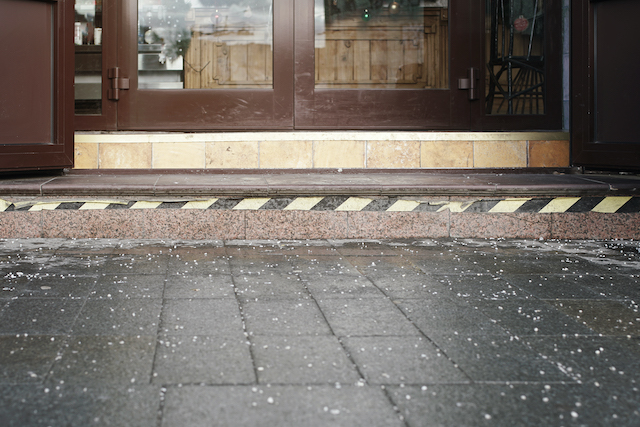Innovative Ways to Protect Your Concrete from the Brutal Winter Conditions

Read on for a handful of ways you can protect the concrete on your property from the brutal winter weather conditions!
Winter has arrived, and soon enough, we will start to experience some hail, snow, and sleet. This means you should be taking the proper steps to help protect your property’s different concrete surfaces, like walkways, patios, balconies, and other exposed outdoor surfaces. Concrete is porous, which means that it absorbs water readily. Porous materials are a lot more easily damaged during the winter freeze-thaw cycles than any other non-porous ones. While concrete is a much stronger and more durable material, it isn’t resistant to other chemicals and other treatments you might apply to keep it ice and snow-free. Read on for a handful of ways you can protect the concrete on your property from the brutal winter weather conditions!
Sealing Your Concrete Surfaces Consistently
An easy way to protect concrete surfaces from bad winter freezing is by applying sealers on them on a very consistent basis. There are two leading kinds of concrete sealers and these are known as film-forming acrylic sealers and penetrating sealers. The acrylic sealers will dry to form a weather-resistant film on top of your concrete, protecting it from any water penetration and other deicing chemicals you may use during the winter. On the other hand, penetrating sealers will not create a film on your concrete surface but will penetrate deeper down into your concrete pours to assist in coating the interior with a few water-replant substances. These kinds of sealers should be directly applied shortly before or after the winter has come. This helps you avoid dangerous cracks and ground fissures and helps prevent existing cracks from getting worse in the winter seasons.
Limiting and Not Using Chemical Deicers
Limit the usage of chemical deicers around the winter, or do not use them entirely. If you do decide to use them, choose wisely. A couple of deicing chemicals could damage concrete sealers and concrete surfaces underneath it right away, while others will wither away and damage surfaces as time starts to pass. Avoid using deicers that contain ammonium sulfate and ammonium nitrate too. These can hurt concrete surfaces by causing them to disintegrate very slowly. Ideally, you should be covering any slippery concrete with some normal sand. Sand won’t melt ice, but it will create traction on the ice surface, making it less slippery, easier, and safer to walk on.
Removing Snow Off Your Concrete
To keep your concrete in good condition, always remove snow as soon as possible. If you need help with concrete repair services and installations, give us a call as soon as you’re free!
Revitalize Your Business with G&M Services
G&M Services is proud of our employees and the dedication they have for safety in the workplace. We reward our employees for displaying positive safety practices. We incorporate weekly and monthly discussions and meetings to ensure that all involved know how to handle equipment and potentially risky situations during a project. We offer services in the way of concrete core-drilling and sawing, concrete scanning, Air Barriers, Firestop, and BIM Project Management and Coordination. To get started with us, call today at 410-787-8828 or visit our contact page. Follow the official company page today on Facebook, Twitter, and LinkedIn.








